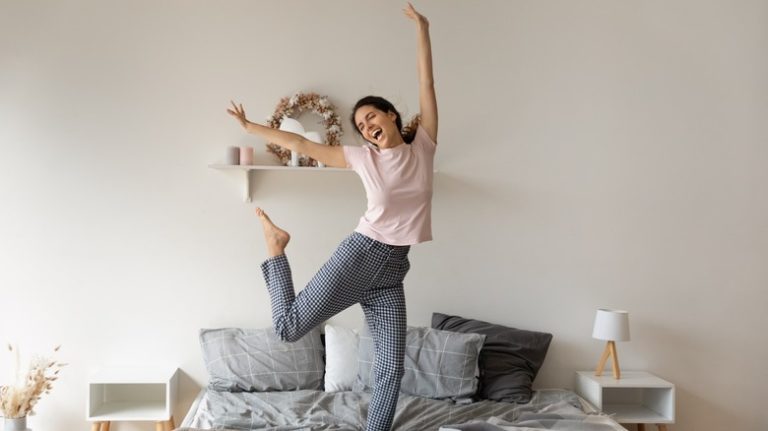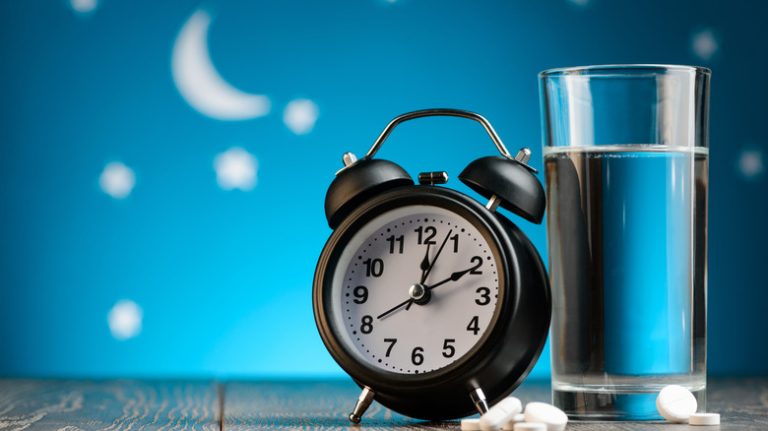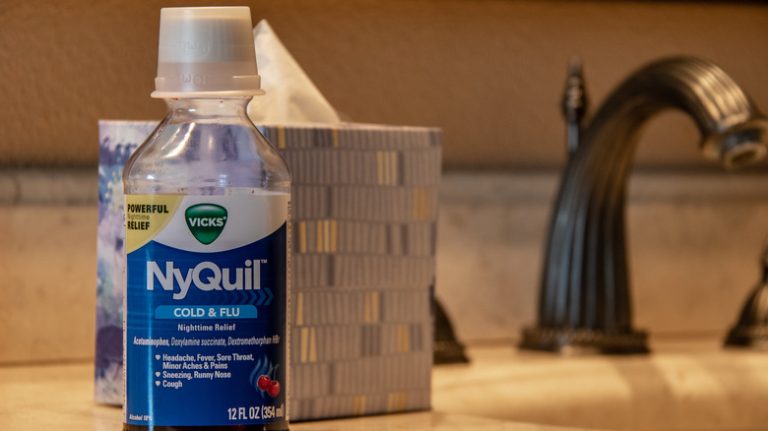Regular exercise has a plethora of benefits for both our bodies and our minds. According to Johns Hopkins Medicine, exercise reduces stress and anxiety, releases feel-good chemicals like endorphins, and it can help you get better sleep! Dr. Charlene Gamaldo, the medical director of the Johns Hopkins Center for Sleep, says that research shows that exercise helps you fall asleep quicker and get more restful sleep. Researchers haven’t pinned down exactly why exercise improves sleep, but there’s plenty of evidence that proves it does.
One study published in the medical journal Clinics found that regular aerobic exercise was an effective treatment for chronic insomnia — in fact, it worked just as well as medication. Another study published in the journal Sleep found that people with more sedentary lifestyles were more likely to have sleep problems than those with a more active lifestyle. Dr. Michelle Drerup, a sleep medicine psychologist at the Cleveland Clinic, says there are several theories about the relationship between exercise and improved sleep quality. One theory is that exercise’s anxiety-busting qualities help us drift off more easily. Another theory posits that exercise prepares us for sleep by tiring out our bodies, which increases our biological need to get some rest.
Some exercises are better than others for getting some solid zzzs. Here are the exercises you should try in order to get your best night’s sleep.
Walking
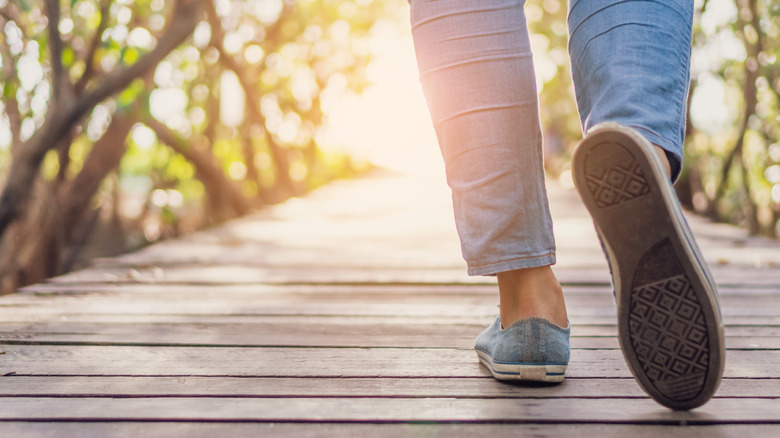
According to a study published in Sleep Health, hitting your daily step goal could be the key to a good night’s sleep. Participants in the study tracked their daily steps and active minutes with a FitBit, along with tracking sleep duration and perceived sleep quality. The study found that people who took more steps and had more active minutes reported better sleep quality. The study also found a correlation between better sleep and higher daily step totals or more active minutes. A similar study conducted in Japan observed the sleep habits of participants who were asked to walk 10,000 steps each day for four weeks (via BMJ Open). The study found that hitting the daily step goal significantly improved sleep quality and duration, especially for those who didn’t have a regular exercise regimen. So, if you want to get a great night’s sleep, get out for a walk each day or alter your daily habits so you can hit your daily step goal on a regular basis.
Swimming
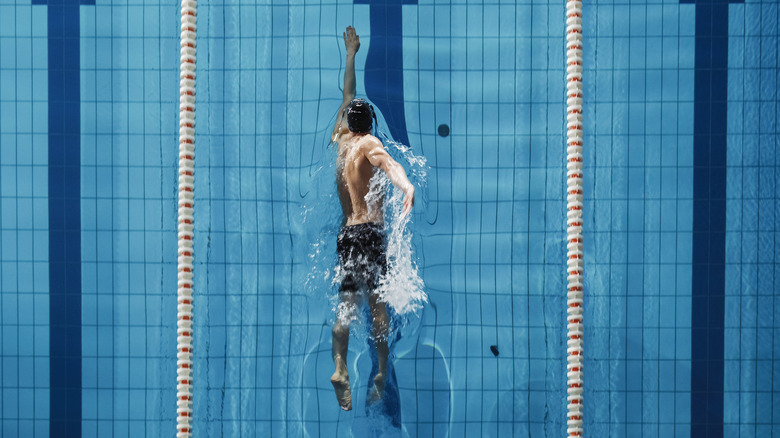
Swimming is a highly accessible way to get moderate- to vigorous-intensity exercise. According to Healthline, even people with physical limitations that prevent them from running, biking, playing sports, or doing other types of exercise can usually swim without issues. Additionally, swimming is an excellent cardiovascular workout, and studies show that cardio workouts are some of the best for promoting sleep.
One such study found that people who engaged in some kind of moderate cardiovascular exercise, including swimming, reported that they slept longer and better than those who didn’t exercise (via Sleep Medicine). The study also found that people who exercised regularly were less fatigued during the daytime. A survey conducted by the National Sleep Foundation showed similar results. Participants who engaged in vigorous cardiovascular exercise, including swimming, reported better sleep quality than people who engaged in moderate or light exercise. The same study found that people who didn’t exercise at all reported significantly lower sleep quality than those who exercised regularly, and that people who did any kind of exercise reported better sleep quality than those who didn’t exercise at all. So, if you want to improve your sleep quality and need a low-impact form of cardiovascular exercise, swimming is a great option.
Cycling

TORWAISTUDIO/Shutterstock
Research shows that any type of moderate aerobic exercise will likely help you sleep better. However, there is some research that suggests going for a bike ride is the best kind of exercise for better sleep. A meta-analysis of studies on the impact of high-intensity exercise on sleep found that people who did cycling exercises fell asleep easier and slept better than those who performed other types of high-intensity exercise. The benefits were greater for those who didn’t have a regular exercise routine prior to participating in the studies.
Researchers at Clemson University also found a strong link between cycling and better sleep (via Frontiers in Neuroscience). The researchers set out to examine the benefits of cycling workstations. They asked some students to study at a workstation with a stationary bike instead of a chair, while others were asked to work at a traditional desk. Throughout the study, students in both groups were asked to fill out surveys about their mood, sleep, and overall health. The survey responses showed that students who studied at traditional desks had significantly poorer sleep quality than those who studied at the cycling workstations. According to the researchers, the results suggest that fitting in exercise in any way, even while studying or working, has a positive impact on sleep.
Strength Training
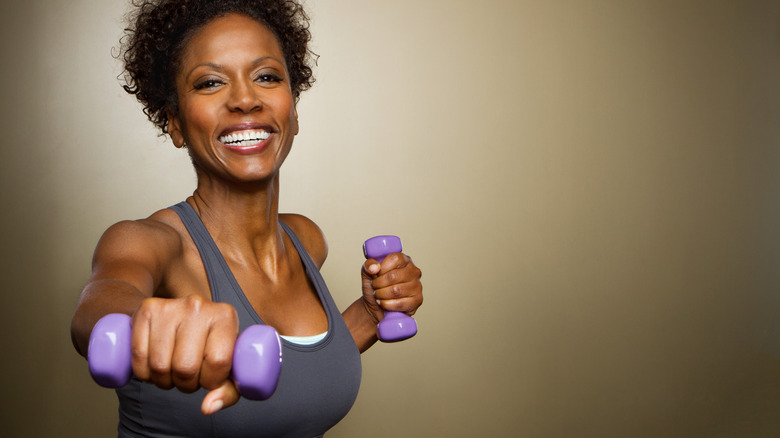
pixelheadphoto digitalskillet/Shutterstock
Aerobic exercise isn’t the only type of exercise that can help you sleep better. Research shows that anaerobic exercises such as strength training can also help you catch those zzzs (via Healthline). One research meta-analysis found that people who maintained a regular strength training routine fell asleep easier, stayed asleep longer, and reported higher levels of sleep quality (via Sleep Medicine Reviews). The same review found that strength training helps to reduce depression and anxiety, which may be one reason why it leads to better sleep. Another study into the effects of strength training on sleep published in the medical journal Preventive Medicine Reports found that any amount of strength training had a positive impact on sleep quality. These results suggest that you don’t need to have a rigorous strength training routine to get better sleep — even modest changes to your exercise regimen can make an impact.
High intensity interval training (HIIT)
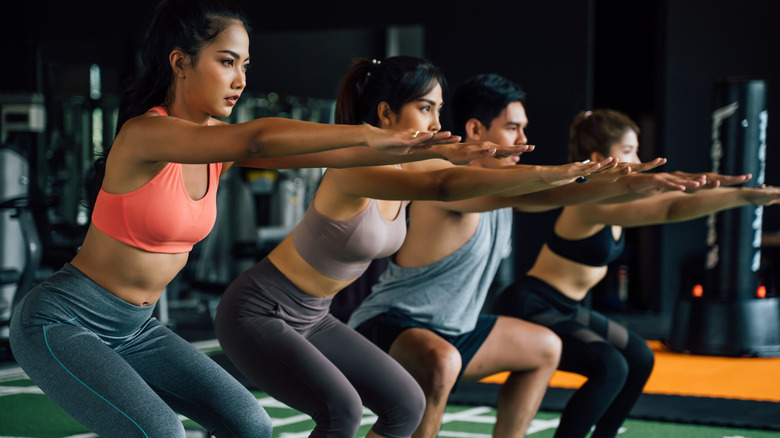
Twinsterphoto/Shutterstock
Most of the research into exercise and sleep shows that moderate-intensity exercise leads to the best sleep quality. However, there is a growing body of research about the impact of high intensity interval training, or HIIT workouts, on sleep. One study published in the European Journal of Clinical Investigation found that people who participated in HIIT workouts slept longer, woke up less, and reported better sleep quality. The same study also found that HIIT workouts produced the same benefits for sleep as other kinds of exercise.
Another study examined the common wisdom that vigorous exercise performed right before bed decreases sleep quality by studying whether HIIT training in the evening had that effect (via Experimental Physiology). The study participants were asked to vary the time of their daily HIIT workouts and track their sleep quality. When the researchers reviewed the results, they found that people who did HIIT workouts at night slept just as well as those who worked out in the morning or afternoon. They also found that people who did HIIT workouts at night spent longer in the rapid eye movement (REM) phases of sleep.
Boxing
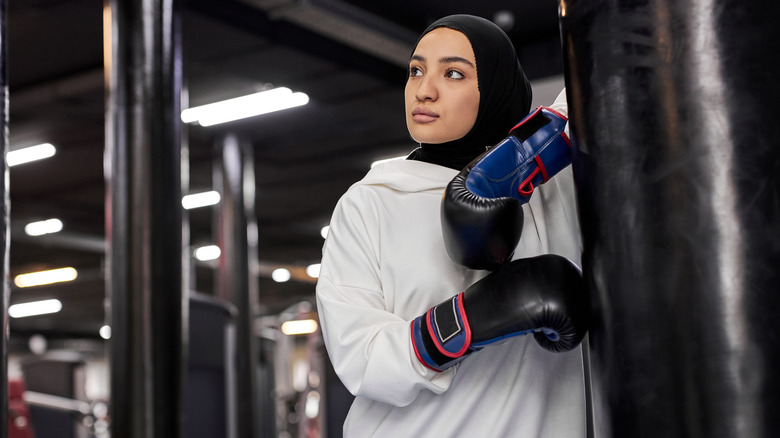
UfaBizPhoto/Shutterstock
Boxing has become a popular form of moderate to vigorous exercise. According to Healthline, boxing classes typically include a mixture of calisthenics, strength training, movement patterns called footwork, and punching a heavy bag, also known as bag work. This combination creates a whole-body that, like high intensity interval training, relieves stress and tires out the body, which is why it may help improve sleep quality.
The link between boxing and sleep quality hasn’t been extensively researched yet. However, a few studies have examined boxing as a tool for managing symptoms of Parkinson’s disease, including sleep quality and drowsiness through the day. One such study found that people who participated in a six-week high intensity boxing program reported better sleep quality and less daytime drowsiness (via Topics in Geriatric Rehabilitation). They also reported significantly lower levels of depression. These results suggest that regular participation in boxing workouts or classes could possibly lead to better sleep for people without Parkinson’s as well, though more research on this topic is needed.
Pilates
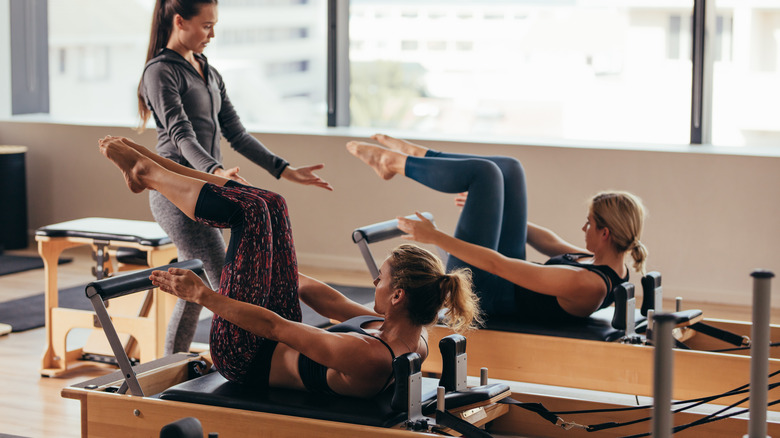
Jacob Lund/Shutterstock
Joseph Pilates, the creator of the Pilates Method of Exercise, has a lot to say about how his exercise regimen can help you sleep, according to Verywell Fit. The exercise guru wrote about the connection between Pilates and sleep in “Return to Life Through Contrology,” the original guidebook to his movement methods and philosophies. In it, Pilates insisted that exercise was the answer to lack of sleep. He wrote that tiring the body out from movement was the best way to rid oneself of the anxieties that often cause insomnia or poor sleep. And specifically, Pilates recommended spinal movements as the key to better sleep.
Research into the Pilates Method as a treatment for sleep issues suggests that Pilates was on to something. One study published in the Journal of Bodywork and Movement Therapies found that people who participated in a 12-week Pilates program consisting of two sessions per week experienced significant improvements in both sleep quality and quality of life. Additionally, a meta-analysis of six studies into the effect of the Pilates Method on sleep revealed a clear correlation between Pilates and better sleep (via Frontiers in Neurology). The researchers suggested that Pilates may be particularly effective for improving sleep quality because its been shown to reduce stress, anxiety, and depression, which plays a role in improving sleep quality.
Yoga
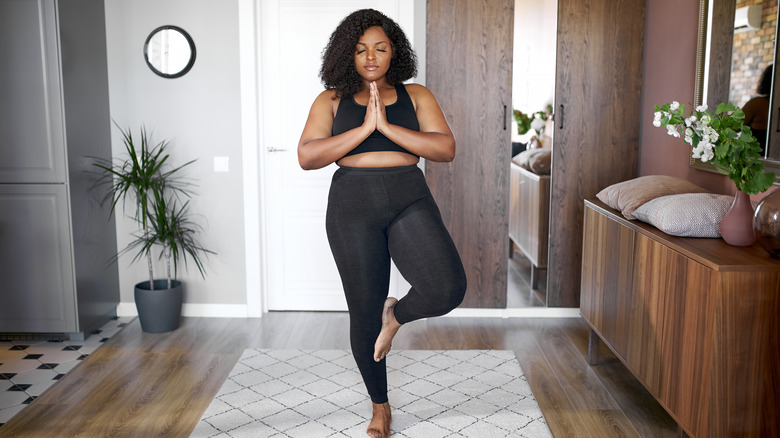
Roman Chazov/Shutterstock
According to the Sleep Foundation, yoga improves sleep in a few ways. It gets our bodies moving, which science has proven is essential to sleep quality. Yoga also helps calm and quiet the mind, which can make falling asleep and staying asleep easier.
A survey conducted by the National Center for Complementary and Integrative Health found that 55% of respondents said yoga helped them sleep better. It also found that 60% of respondents also said that practicing yoga motivated them to exercise. Research has also shown that yoga promotes better sleep. One research meta-analysis found that yoga significantly increased sleep quality, and that longer practices were correlated with better sleep (via BMC Psychiatry). Another study which examined the sleep quality of people with long-term yoga practices found that regular yoga practitioners had lower levels of the stress hormone cortisol (via Biological Psychology). Higher levels of cortisol are associated with sleep issues, so regulating cortisol helps with sleep.
Doing simple poses like forward folds, reclined butterfly, and legs up the wall right before bed can help you stretch your body and prepare to sleep (via Sleep Foundation). If you want to do a full practice before bed, try hatha yoga, which is a slow and gentle flow.
Stretching
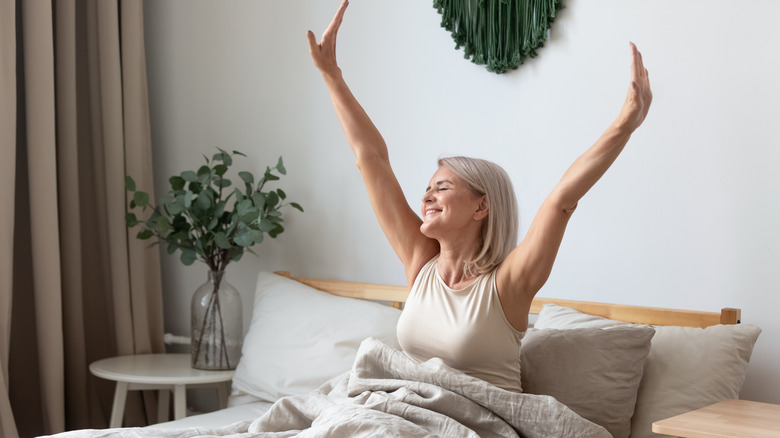
fizkes/Shutterstock
Extensive research has been conducted on the sleep-related benefits of stretching. One study on older people with cognitive and sleep issues found that participation in a low intensity stretching program was more effective at improving sleep quality than aerobic exercise (via the Journal of the American Geriatrics Society). Another study examining the relationship between fitness and sleep in postmenopausal women found that the women who stretched regularly had less trouble getting to sleep and were less likely to use sleep medication than the other participants in the study.
According to Medical News Today, stretching right before bed is a great way to set yourself up for a good night’s sleep. They suggest doing a series of simple stretches including head rolls, spinal twists, seated forward bends, seated side stretches, figure four hip stretches, and legs up the wall. Most of these stretches can be performed in bed, so you can do them right before you lay down and close your eyes.
Tai chi
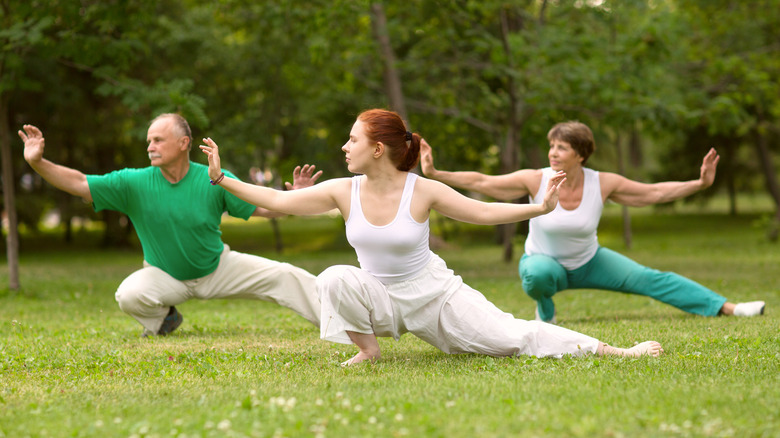
Ulza/Shutterstock
Like yoga, tai chi is a meditative movement practice. According to the Mayo Clinic, the martial art was developed in ancient China as a form of self-defense. It’s evolved into an accessible movement practice consisting of several poses, which are done one after another. The result is a graceful practice that looks more like a beautiful dance than a martial art. Tai chi also involves specific breathing techniques that calm both the body and the mind.
Several studies have shown that tai chi can help you get a good night’s sleep. One meta-analysis of 11 studies on the health benefits of tai chi found that people who practiced tai chi for more than an hour and a half per week reported a significant increase in sleep quality (via Journal of Sleep Disorders & Therapy). Notably, the review found that tai chi improved sleep quality even for patients with chronic conditions, suggesting that tai chi may be a beneficial part of a treatment plans for those with chronic illnesses. A more recent meta-analysis of 24 studies determined that tai chi significantly improved sleep quality in healthy populations, and that 60- to 90-minute sessions were most beneficial.
Qigong

Sergii Kovalov/Shutterstock
Qigong is an ancient Chinese movement practice that is similar to tai chi, with one key difference: While tai chi includes a specific set of movements that need to be memorized, qigong focuses on intuitive movement (via Bustle). Qigong is about tuning into your body and feeling how your energy needs to move. When you’ve been sitting too long and you stand up to do some easy stretches, you’re practicing qigong.
Research has shown that, like tai chi, qigong can help you get quality sleep. One study published in the medical journal Evidence-Based Complementary and Alternative Medicine examined the impact of qigong on sleep quality in people with chronic fatigue. Participants attended 16 sessions of qigong classes over nine weeks and recorded information about their sleep. The study found that regular qigong practice helped participants fall asleep more easily, sleep longer, and get better quality sleep. Another study performed on 170 women who had experienced intimate partner violence found that regular qigong practice significantly reduced sleep disturbances (via the Journal of Clinical Sleep Medicine). The same study found that qigong also reduced feelings of depression, which the researchers posited led to the improvement in sleep quality.
Exercise outdoors

4 PM production/Shutterstock
If you want to maximize the sleep-related benefits of your exercise routine, research suggests you should exercise outside. One study that examined the relationship between time spent outside and sleep found that participants who spent more time outdoors slept longer (via PLoS One). The same study found that people who exercised outdoors in the morning slept better than those who exercised outdoors in the afternoon. The researchers posited that the exposure to natural light from exercising outside helped regulate participants’ circadian rhythms, leading to more sleep. Additionally, they suggested that morning exposure to natural light may be more effective than afternoon exposure because the light is brighter in the morning.
Another massive study on the effects of time spent in nature on depression, mood, and sleep published in the Journal of Affective Disorders also found that time spent outdoors had a major impact on sleep. Participants who spent at least an hour outside each day had an easier time getting out of bed in the morning, were less tired during the day, and experienced less symptoms of insomnia than those who spent less than an hour each day outside. The study also found that sleep quality improved with each additional hour spent outside. So if you’re looking for a better night’s sleep, you may want to get moving outside, preferably in the morning!
How much exercise do you need for better sleep?
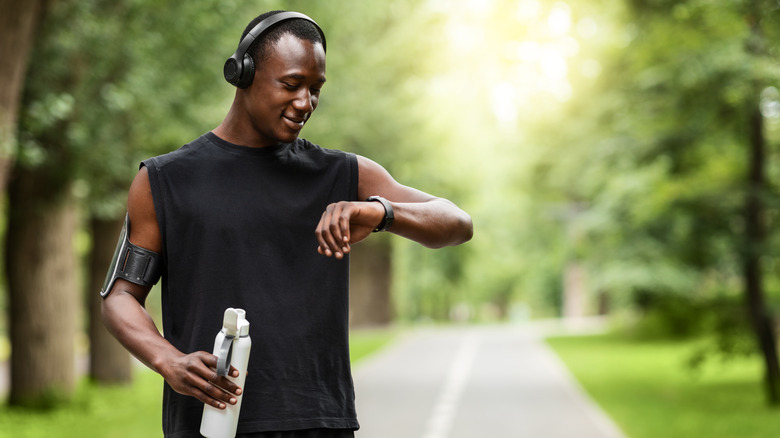
Prostock-studio/Shutterstock
It’s clear that regular exercise has a huge impact on sleep. But just how much exercise do you need in order to get a better night’s sleep? Luckily, not that much. According to the Cleveland Clinic, as little as 30 minutes of exercise can improve your sleep, as long as it’s done regularly. They suggest aiming for 30 minutes of moderate or intense exercise five days a week. However, those 30 minutes don’t have to be consecutive. If you really can’t fit in a 30-minute workout all at once, then break it up into 10- or 15-minute intervals and exercise throughout the day. The most important thing is that you get your body moving multiple times a week and stay consistent.
Dana Santas, a strength and conditioning expert who contributes to CNN, told the outlet that just 20 to 25 minutes of exercise a day can help improve sleep. She also stressed consistency. If you can only fit a 20-minute workout in, try to do it daily instead of a few times a week. Santas added that the type of exercise doesn’t really matter. As long as you’re getting your body moving each day, you’ll see results at bedtime.
When should you exercise for better sleep?
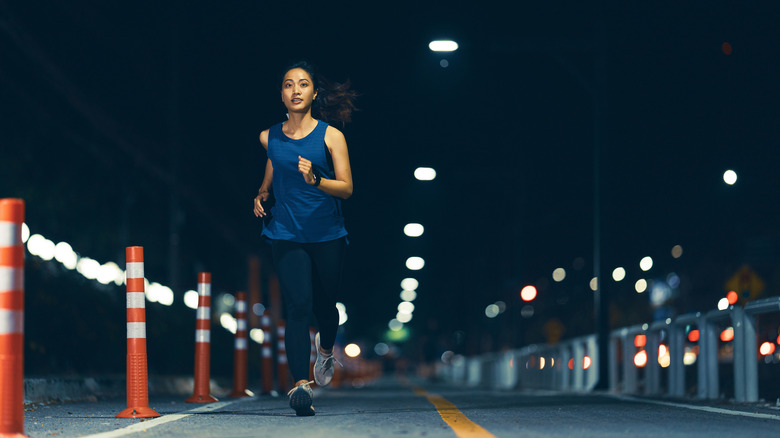
TORWAISTUDIO/Shutterstock
There’s a longstanding debate about whether or not exercising before bed helps or hurts your sleep quality, according to Johns Hopkins Medicine. Some experts say that you should avoid moderate or intense workouts right before bed because they release neurochemicals that keep your mind buzzing and increase your body temperature, which tells the body that it should be alert, not sleepy.
There is some evidence to support this recommendation. One meta-analysis of studies on how nighttime high intensity exercise impacts sleep found that people who did high intensity exercise right before bed spent less time in the rapid eye movement (REM) phases of sleep, indicating lower sleep quality (via Sleep Medicine Reviews). However, when high intensity exercise was performed two to four hours before bed, there was no impact on sleep. An earlier meta-analysis found that people who did high intensity exercise a few hours before bed slept better than those who didn’t. However, the researchers noted that high intensity exercise done within an hour before bedtime was correlated with poorer sleep.
Dr. Charlene Gamaldo, the medical director of Johns Hopkins Center for Sleep, says that the best time to exercise is when it consistently works for you. If you find that you don’t sleep as well when you workout at night, try switching to morning workouts.

